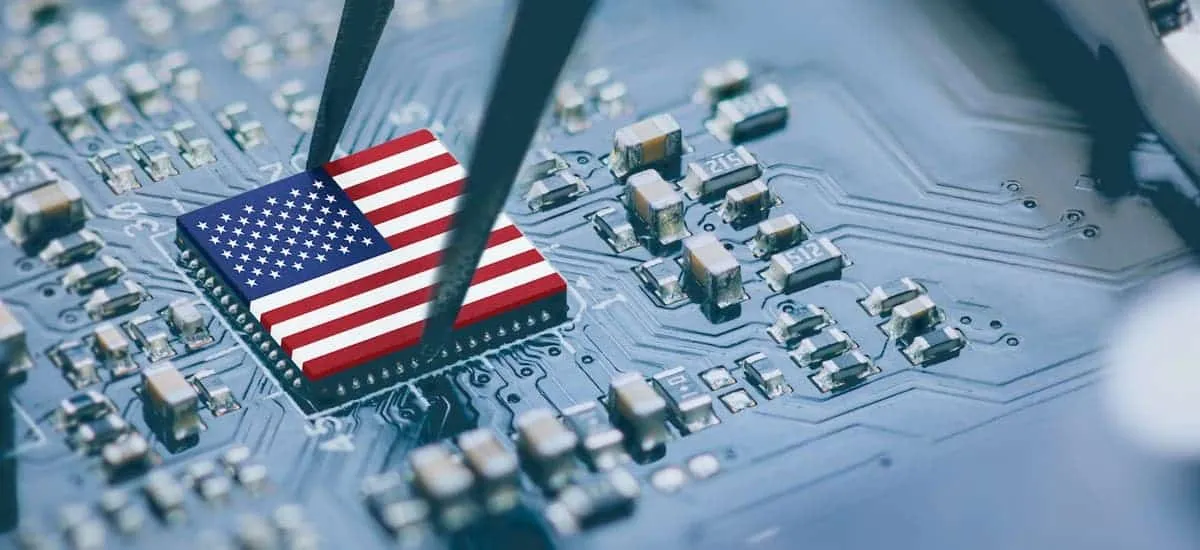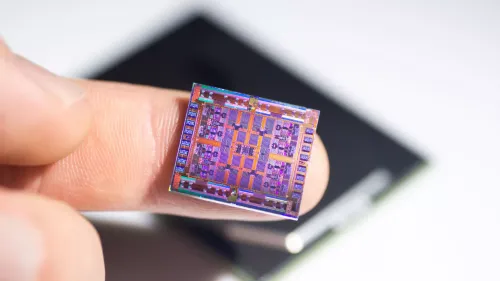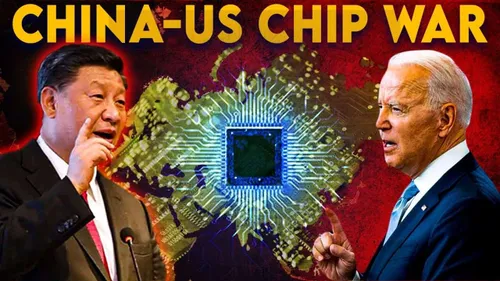Samsung and SK Hynix takes relevant action to avoid U.S. sanctions
SamsungThursday, 14 March 2024 at 06:23

Samsung Electronics and SK Hynix, two major South Korean technology companies, have recently halted the sales of old chipmaking equipment due to concerns about potential repercussions from U.S. sanctions. This decision comes amidst a complex geopolitical landscape involving the U.S., China, and South Korea. Samsung and SK Hynix are among the world's top chip manufacturers. They often upgrade to newer and more advanced chip manufacturing equipment and sell older devices after retiring them. However, according to the Financial Times, Samsung and SK Hynix have stopped selling old equipment.

Background
According to reports, Samsung and SK Hynix are worried that these old devices will fall into the hands of the "wrong" companies. These "wrong" companies include Chinese and Russian brands that are currently under the U.S. ban. If this happens, the manufacturing company could face a ban from the US government. The United States has previously restricted the export of advanced chip manufacturing technology to some Chinese companies.
Samsung and SK Hynix chose to store these old devices in warehouses instead of selling them to second-hand equipment dealers as usual. After the United States banned the export of chipmaking equipment made by American companies or using American technology, some chipmakers began to stockpile old equipment out of concern about U.S. sanctions.
There are reports that SK Hynix has recently resumed selling some of its old equipment due to insufficient storage space. It will become increasingly difficult for Korean companies to hold large amounts of old equipment. This is because these multi-million-dollar equipment may number in the hundreds or even thousands. It is unclear what the future of these companies will be. How these devices will be disposed of.
It is important to note that both Samsung and SK Hynix have received exemptions from the U.S. government to continue their chipmaking operations in China without facing sanctions. South Korea's diplomatic efforts have played a crucial role in securing these exemptions. The decision to allow Samsung and SK Hynix to operate in China contributes to stabilizing the supply chains for advanced technology products. However, this does not mean they can sell their tech to banned companies.
Implications and Reactions
Samsung and SK Hynix are significant players in the global DRAM and NAND flash markets, with a combined market share of nearly 70% in DRAM and 50% in NAND flash. The exemptions granted by the U.S. government are expected to have positive effects on the global semiconductor supply chain and help in maintaining stable prices for semiconductor products. The decision reflects the intricate balance of power dynamics between the U.S., China, and South Korea, highlighting the importance of strategic alliances in the technology sector. However, if they can not sell off their old equipment, it is only a matter of time before they run out of storage space. They will likely struggle for space shortly and this will force them to make some sales.

Future Outlook
Samsung and SK Hynix's ability to import advanced chipmaking equipment into their Chinese facilities without restrictions paves the way for future technological advancements and cost-efficient production processes. While the exemptions allow for continued operations in China, seeking financial support under U.S. regulations may impose limitations on further investments in Chinese facilities. As for older equipment, these brands can not continue to store them. They will likely seek approval to sell these devices to certain brands. If they get official approval from the U.S., then they have nothing to fear.
Conclusion
Samsung Electronics and SK Hynix, two major South Korean technology companies, have recently halted the sales of old chipmaking equipment due to concerns about potential repercussions from U.S. sanctions. This decision reflects the complex geopolitical landscape involving the U.S., China, and South Korea. Despite receiving exemptions to continue operations in China, these companies are facing challenges in storing large amounts of old equipment, which may lead to future sales to specific brands if approved by the U.S. government. The implications of these actions highlight the delicate balance of power dynamics in the global semiconductor industry and the importance of strategic alliances for maintaining stable supply chains and prices for semiconductor products.
Popular News
Latest News
Loading




